Child Study and Human Development
Spring: n/a
Summer: n/a
Part-time (Daytime)
Overview
The Tufts MA in Child Study and Human Development will provide you with a strong theoretical foundation in child development; coursework in an area of specialization; mentorship; research skills; and applied opportunities and fieldwork. Graduates of the program go on to become scholars and practitioners who are making a difference in the lives of children and adolescents.
Program Outcomes
Graduates of the Child Study and Human Development MA Program understand how to use theory and research to positively impact the lives of children and families. Many graduates do direct service work in the field of education, while others enter doctoral or other degree or licensure programs, and some work for a few years before going on to pursue further advanced study. Recent graduates of the MA program have secured positions such as:
- Developmental specialist in an early intervention program
- Child development specialist in a community-based nonprofit
- Child advocate in juvenile and family courts
- Family therapist in a therapeutic school
- Mental health specialist in a psychiatric hospital
- Research coordinator in a pediatric unit of a hospital
- Curriculum specialist in a public school
- Technology consultant in an after-school program
- Assistant to the director of a children's television program
- Director of summer camp programs
- Bilingual intensive care coordinator in a community-based nonprofit
- Assistant program coordinator in a hospital-based nonprofit working with individuals with autism
- Transition specialist in an autism program
Tracks
After their first semester, students determine whether they want to pursue the applied track or the thesis track of the master's program. In the applied track , students work in field placements, such as after school programs, juvenile justice facilities, and hospitals, while receiving support and guidance from Tufts faculty. In the thesis track, students participate in faculty research labs and projects. They attend meetings, conduct literature reviews, locate subjects, collect data, analyze data, and draft research reports, articles, and books for publication.
In addition, students are able to concentrate in one of two specific areas or follow an individualized program of study:
- Clinical-Developmental Health and Psychology;
- Children, Arts, and Media;
- Identity in Global Context;
- Individualized Program of Study
Application Requirements
- Application fee
- Resume/CV
- Personal statement: In one coherent essay of no more than 2,500 words, please address the following:
- Why you are applying to the Eliot-Pearson master’s program
- Your lived experiences, past work experiences, academic work, and other relevant experiences
- Your aspirations for a career after the graduate program (the role and kind of work you hope to be doing), and which aspects of our program would best support your goals
- If admitted, how do you see yourself developing in ways you wish to develop
- Which faculty connect to your interests and why?
- Please also share any additional information that you think will help the admissions committee understand you and why you are applying to the program
- Official TOEFL, IELTS, or Duolingo English Test scores, if applicable
- A minimum score of 95 on the Internet-based TOEFL is generally considered evidence of sufficient English language ability for graduate study. Minimum equivalent scores of 7 on the IELTS and 115 on the Duolingo exam are also considered indication of sufficient ability.
- Transcripts
- Three letters of recommendation
- A supplemental essay answering this prompt:
- How does the mission of the Eliot-Pearson Department of Child Study and Human Development resonate with your interest in the program and your career?
- Mission Statement: The Eliot-Pearson Department of Child Study and Human Development is an inclusive and interdisciplinary community dedicated to: (1) integrating strengths-based theory, research, and practice to enhance the well-being of children, youth, families, and communities through systems change; (2) adopting learner-centered teaching and applied research; and (3) striving to inspire, educate and hold accountable ourselves and others to become active citizens, practitioners, scholars and change makers, in order to (4) promote an accessible, equitable, and just world.
- In 500 words or less, write about the first theme and at least one other. Your essay should seek to answer:
- How do you envision learning to carry out these themes during your time in the MA program?
- What do you find in our program that will help you implement these themes?
- What challenges do you see in your ability to implement each of these themes?
- On your application, please indicate which faculty members you might like to work with if you are admitted to the program. These faculty must have one of the following titles: Assistant Professor, Associate Professor, Professor, Lecturer, Senior Lecturer, or Distinguished Senior Lecturer. Please do not list Research Assistant Professors, Research Associate Professors, Part-Time and Adjunct Faculty, or Affiliated Faculty Members, as they cannot be advisors for master’s students.
- Please note that some applicants may be asked to interview with a faculty member as part of their admissions process.
Tuition & Fees
GSAS bills tuition using a per-credit billing model, meaning you are billed for the number of credits you take each semester. This billing model is used to provide students better flexibility so they may "pay-as-they-go".
| Tuition* | $1,799 per credit |
| Total Credits Required | 32 |
| Enrollment Status | Part-Time: 3-6 credits (typically 1-2 courses) Full-Time: 8+ credits (typically 3 or more courses) or qualifying enrollment criteria (assistantships, internships, or continuation courses, etc.) |
Estimating Tuition Costs for this Program
This example pathway outlines estimated tuition costs per semester using a typical full-time course load. This is one possible pathway to completion; actual credits, costs, enrollment status, and degree completion time may vary based on a student’s course load.
| Full-Time Pathway | Fall | Spring | Total |
| Year 1 | 8 credits | 9 credits | 17 credits |
| $14,392 | $16,191 | $30,583 | |
| Year 2 | 9 credits | 6 credits | 15 credits |
| $16,191 | $10,794 | $26,985 | |
| Estimated Total Tuition Before Aid* | $57,568* | ||
Note: this example does not account for any scholarships that may be awarded at the time of admission. GSAS offers generous merit- and need-based tuition scholarships for qualified applicants. A list of funding opportunities is provided below.
*Estimated based on 2025-2026 tuition rates. Rates are subject to change each academic year. For further information about the full cost of attendance, including health insurance, fees, and estimated indirect costs (housing, transportation, etc.), visit Student Financial Services.
Financial Aid & Funding Opportunities
At Tufts University, we believe that every qualified applicant should have the opportunity to pursue graduate study, regardless of financial circumstances. We are committed to helping you navigate the financial aspects of your education and strive to make graduate school accessible through a variety of support options.
Scholarships and Awards Available for this Program
- Merit- and need-based tuition scholarships for master’s programs: To be considered, be sure to indicate your interest within the Financial Aid section of your application.
- The Kathleen Rose Babcock Fellowship provides a $2,500 stipend to a first-year Master’s student in CSHD with a preference for those interested in early childhood education and from New Jersey.
- The Sydney Fellowship provides two students with a $5,000 award to support one year of graduate study and reflects the department’s commitment to increasing diversity in the field of applied child development.
- The John F. Maloney Scholarship provides one student with an interest in special education or children/adolescents with disabilities a $4,500 scholarship, with a preference for students from Connecticut.
- The Future Leaders Fellowship is a full-tuition scholarship for outstanding full-time master’s students and entry-level OTD students. Future Leaders Fellows are selected by the GSAS Dean following their admittance to Tufts.
- Fifth Year Master's Degree Program — current Tufts Undergraduates can enroll in this program which has reduced tuition costs and provides a Financial Aid Match with a graduate tuition scholarship proportional to the undergraduate tuition award at the time of application.
- City Year Corps members, alumni, and staff are eligible to receive a minimum scholarship award of 25% off tuition.
Work Opportunities and Awards
- There are various graduate assistantships and work opportunities available for Master’s students within the department and across Tufts.
- Students have the opportunity to work as paid E‑P Fellows at the Eliot‑Pearson Children’s School, an innovative, inclusive laboratory school where Child Study and Human Development graduate students integrate hands‑on teaching experience with their coursework through a flexible one‑ or two‑year, part‑time commitment.
- The Graduate Student Open Access Publishing Fund provides financial support to students who want to publish their work open access.
- The Graduate Student Research Competition provides funding for expenses including equipment, materials, and supplies; research participant compensation; and expenses of travel to conduct research.
- The Graduate Student Conference Reimbursement Fund is available for students to travel to present or attend at a conference or professional meeting.
Visit our Graduate Financial Aid page for information on loans and financing options.
Spotlights
View our Alumni Spotlights.
Program Video
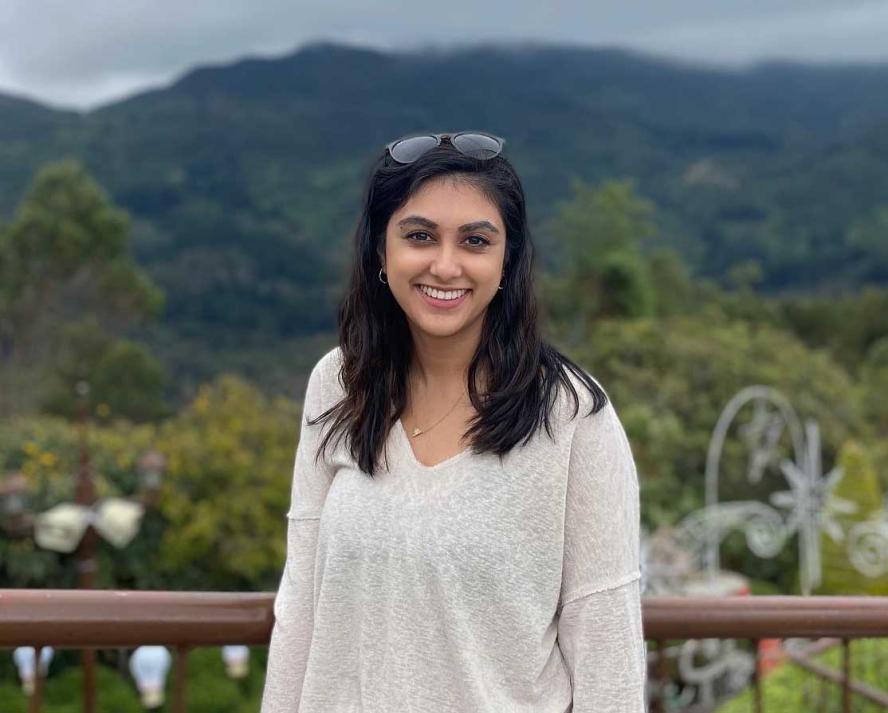
All of the professors I had were incredibly supportive and wanted to see us learn and grow. They were always willing to sit down and talk through ideas, and just be there in any way they could.
Krishna Kaneria, MA in Child Study and Human Development ’22
Career Outcomes
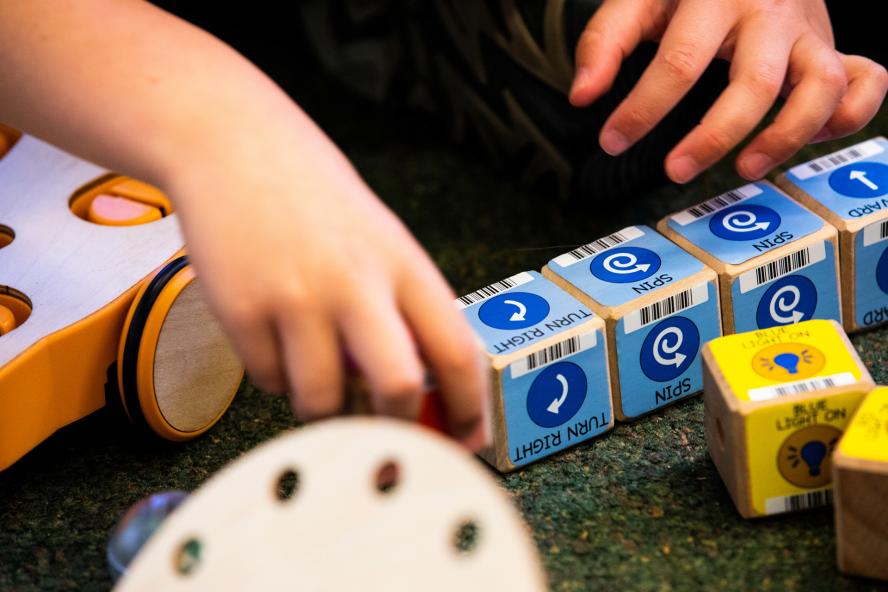
Average Salary: $70K - $90K
Would Recommend the Program: 100%*
Average Age: 25
*Sources: GSAS-SOE Graduate Exit Survey 2020 - 2021 and Academic Analytics (Alumni Insights)
Faculty
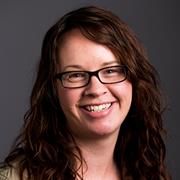
Sara Johnson

Sara Johnson
Research/Areas of Interest: Adolescence and young adulthood; identity development; civic development and engagement; youth contribution; critical consciousness; quantitative methods (including mixture models such as latent class and latent profile analyses); positive youth development
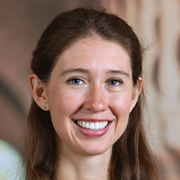
Emma Armstrong-Carter

Emma Armstrong-Carter
Research/Areas of Interest: child development; research practice partnerships; prosocial development; children's caregiving for family; school policies educational success

Mary Casey

Mary Casey
Research/Areas of Interest: Parent-child relations
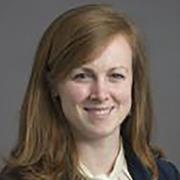
Eileen Crehan

Eileen Crehan
Research/Areas of Interest: Neurodevelopmental disorders; autism spectrum disorder; sexuality education; social perception; eye tracking; dimensional measurement of psychological symptoms
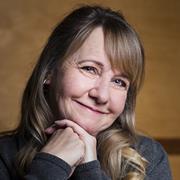
Julie Dobrow

Julie Dobrow
Research/Areas of Interest: Children and media; ethnicity/gender and media; adolescents and media use; women's history and biography I am currently working on a three-tiered interdisciplinary research project along with Chip Gidney, Mary Casey, and Cynthia Smith at Eliot-Pearson, as well as faculty in several other departments at Tufts. The first piece of this project is a long-running content analysis of children's animated programming. We are updating prior work we've done that investigates images of race, ethnicity and gender in children's animated programming using both content and sociolinguistic analysis. The second part of this research is an exploration of why stereotyping persists in children's media. We are examining this through intensive interviews with content creators, writers, directors, vocal casting directors, and actors. The third part of the project is empirical research we're conducting with children, to see how children make sense of gender, race, and ethnicity in the animated programs they see. My applied work includes doing many media literacy workshops for parents and for children and for children in a variety of settings, and consulting work with colleagues at GBH, one of the leading creators of children's educational media. I have written about children and media issues in a variety of academic and popular venues. My other research is historical in nature. I serve as co-PI, along with Jennifer Burton, of the Half the History Project at Tufts, which utilizes short-form biography, film, and podcast to tell the untold and under-told stories of women's lives. I've written one biography of the relatively unknown mother/daughter team who made Emily Dickinson into one of the most-known women anywhere in the world. After Emily: Two Remarkable Women and the Legacy of America's Greatest Poet was published by WW Norton in 2018. My next dual biography, Love and Loss After Wounded Knee: A Biography of an Extraordinary Interracial Marriage, will be published by NYU Press in Fall 2025.
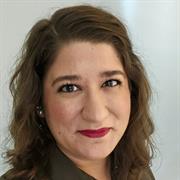
Simone Dufresne

Simone Dufresne
Research/Areas of Interest: neurodivergence, autism, social development, experience of higher education students, participatory research As a teaching faculty member, Simone is not actively conducting research. However, she does advise Master's and Senior Honors thesis students in their research.
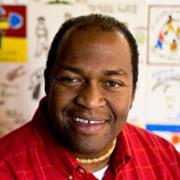
Calvin Gidney

Calvin Gidney
Research/Areas of Interest: Linguistics; literacy, sociolinguistic development; dyslexia in African-American children; language of children's cartoons; children's name-calling

Demond Hill

Demond Hill
Research/Areas of Interest: (Mental) Health Equity; Human Emotions and Behaviors; Belonging and Human Flourishing; Neighborhood and Built Environment; Racial and Structural Inequality; Complex Trauma, Anxiety, and Stress; Education; Social and Emotional Learning/Development; Program Development; Ethnography, Youth-and-Community Based Participatory Action Research; Qualitative Research
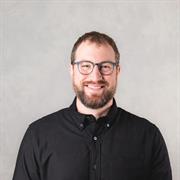
Jordan Jurinsky

Jordan Jurinsky
Research/Areas of Interest: recovery; addiction; substance use; adolescence and emerging adults; community engaged research; recovery high schools; health equity; social contexts
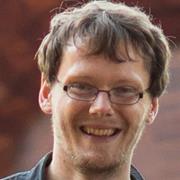
Theo Klimstra

Theo Klimstra
Research/Areas of Interest: Adolescence and young adulthood; identity development; personality development; narrative identity; quantitative methods (including structural equation models)
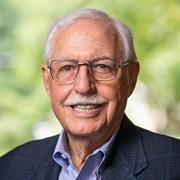
Richard Lerner

Richard Lerner
Research/Areas of Interest: The application of developmental science across the life span; developmental systems theory; personality and social development in adolescence; developmental methodology; programs and policies for children, youth, and families; university-community collaboration and outreach scholarship. Developmental Science
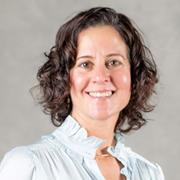
Tama Leventhal

Tama Leventhal
Research/Areas of Interest: Neighborhood and community context; housing context; family context; poverty and socioeconomic status; social policy; adolescence; immigrant young children
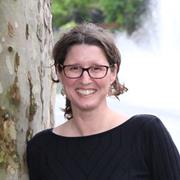
Christine McWayne

Christine McWayne
Research/Areas of Interest: Early childhood education, school success of young children at risk due to poverty, parenting and family-school partnerships in diverse ethnocultural communities, culturally inclusive STEM curriculum, community-based research collaborations.
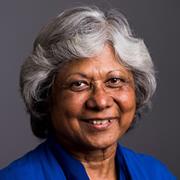
Jayanthi Mistry

Jayanthi Mistry
Research/Areas of Interest: Theoretical perspectives on the integration of culture and human development; Narratives of identity and place in communities; Navigating multiple cultural worlds, with a focus on ethnic minority, immigrant, and under-represented communities; Interpretive and Narrative Analysis methods in the study of children and families.
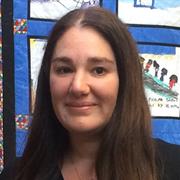
Kerri Modry-Mandell

Kerri Modry-Mandell
Research/Areas of Interest: Pediatric psychology; Developmental Psychopathology; Family Functioning and Adaptation to Pediatric Chronic Illness; Children's Sibling Relationships; Psychological Consultation and Collaboration and Therapeutic Space Design; Grief Support; Pediatric Health Promotion and Disease Prevention Developmental Initiatives
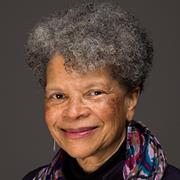
Ellen Pinderhughes

Ellen Pinderhughes
Research/Areas of Interest: Families and children in challenging circumstances; parenting and family functioning among diverse families; ethnic-racial socialization processes; cultural and contextual influences; child and youth outcomes; adoption and foster care
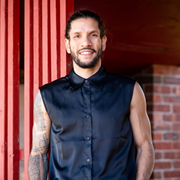
Fernando Salinas-Quiroz

Fernando Salinas-Quiroz
Research/Areas of Interest: My research centers trans and nonbinary children and youth, focusing on how they imagine, inhabit, and transform gender, family, and belonging. I work alongside young people to challenge the rigid binaries that limit their lives, and I see research as a space for co-creation, joy, and justice. Through transdisciplinary approaches, I seek to expand our understanding of change—not as a fixed "path of development," but as the complex, shifting, and plural ways children and communities grow. At the core, my scholarship asks how we can build worlds where trans and queer youth not only exist, but thrive.
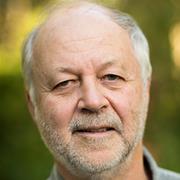
W. George Scarlett

W. George Scarlett
Research/Areas of Interest: Children's development as earth stewards, children's play, Approaches to children's challenging behaviors, religious and spiritual development across the lifespan, the arts in support of children's development.
